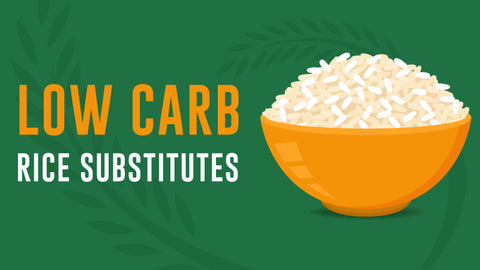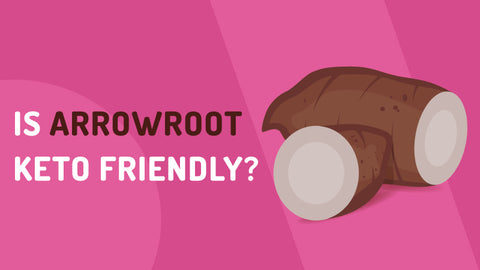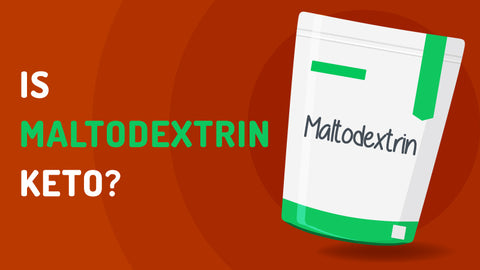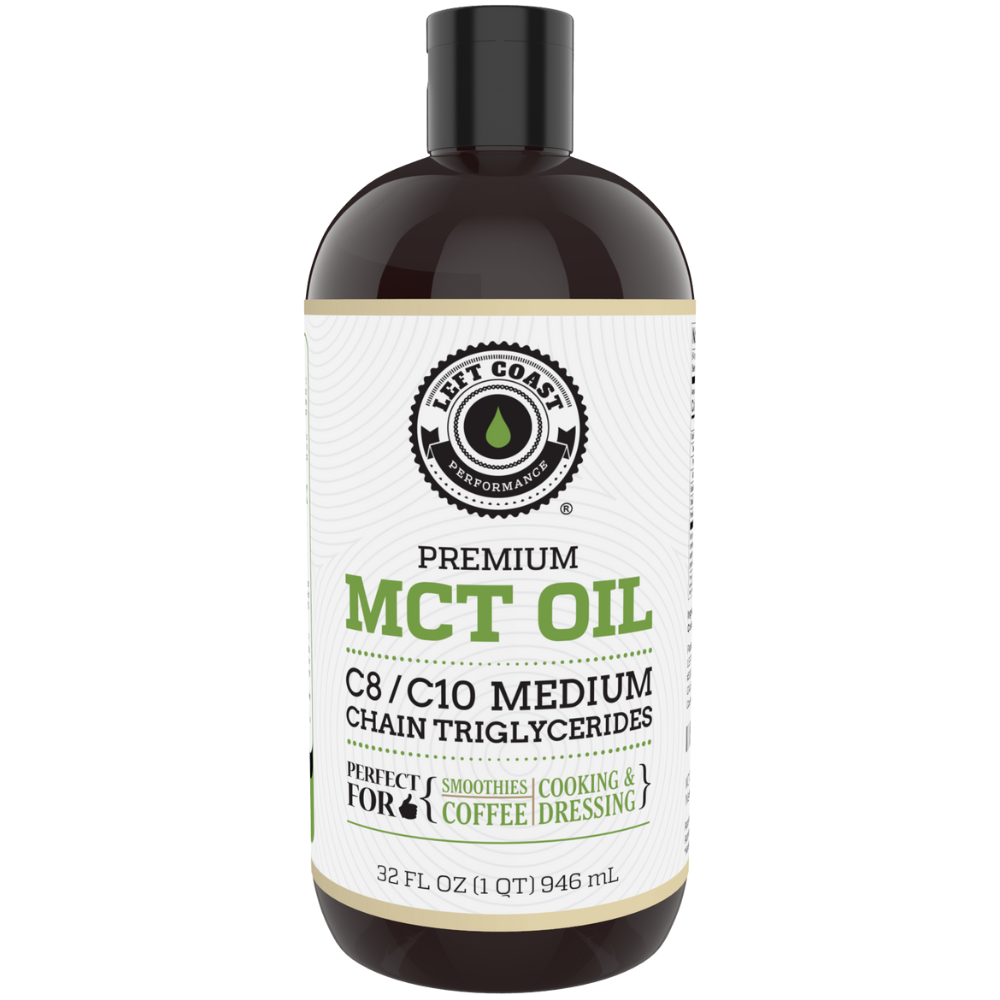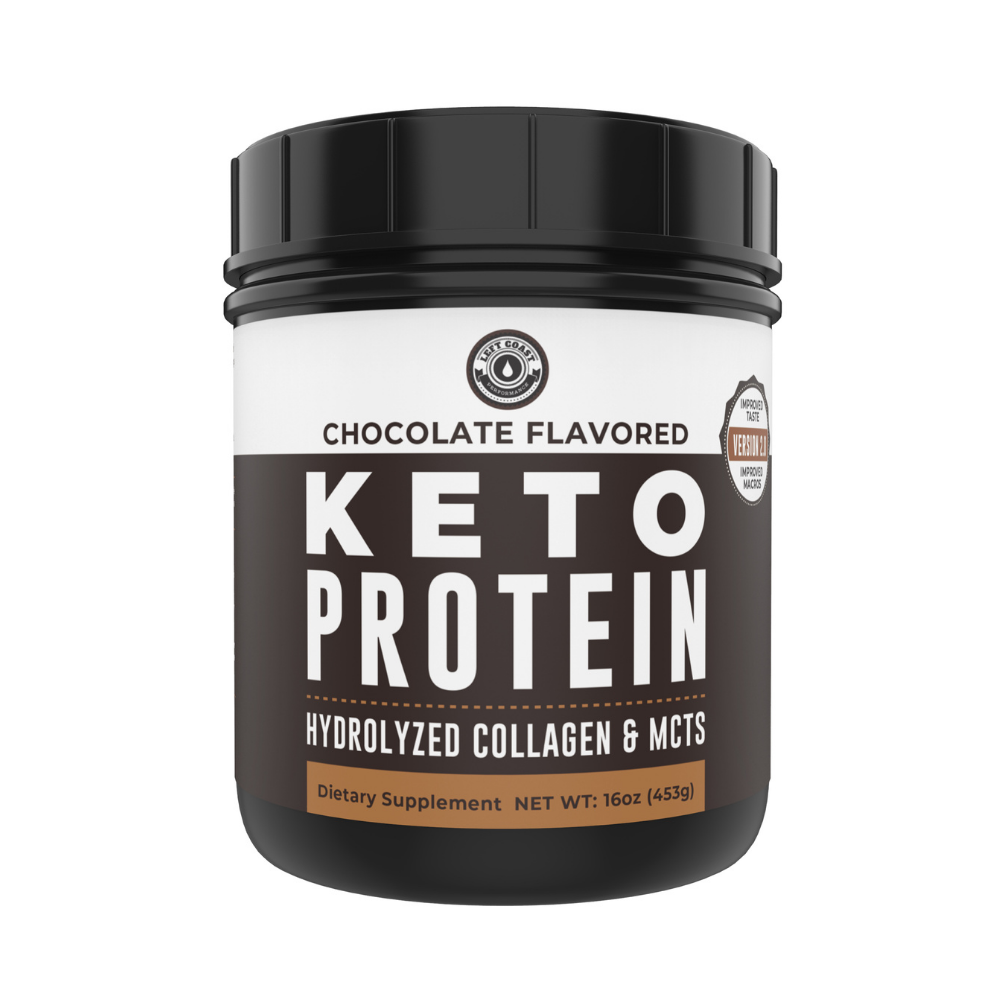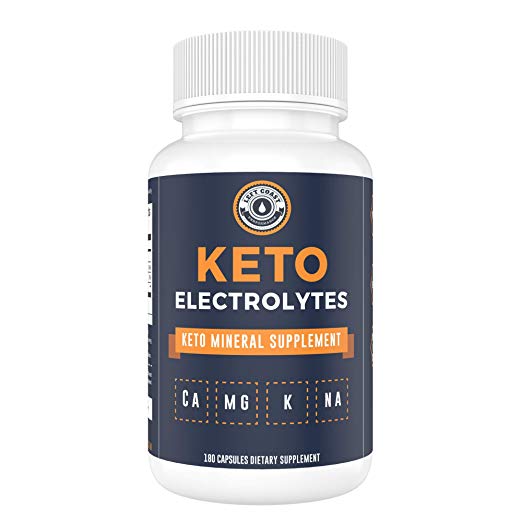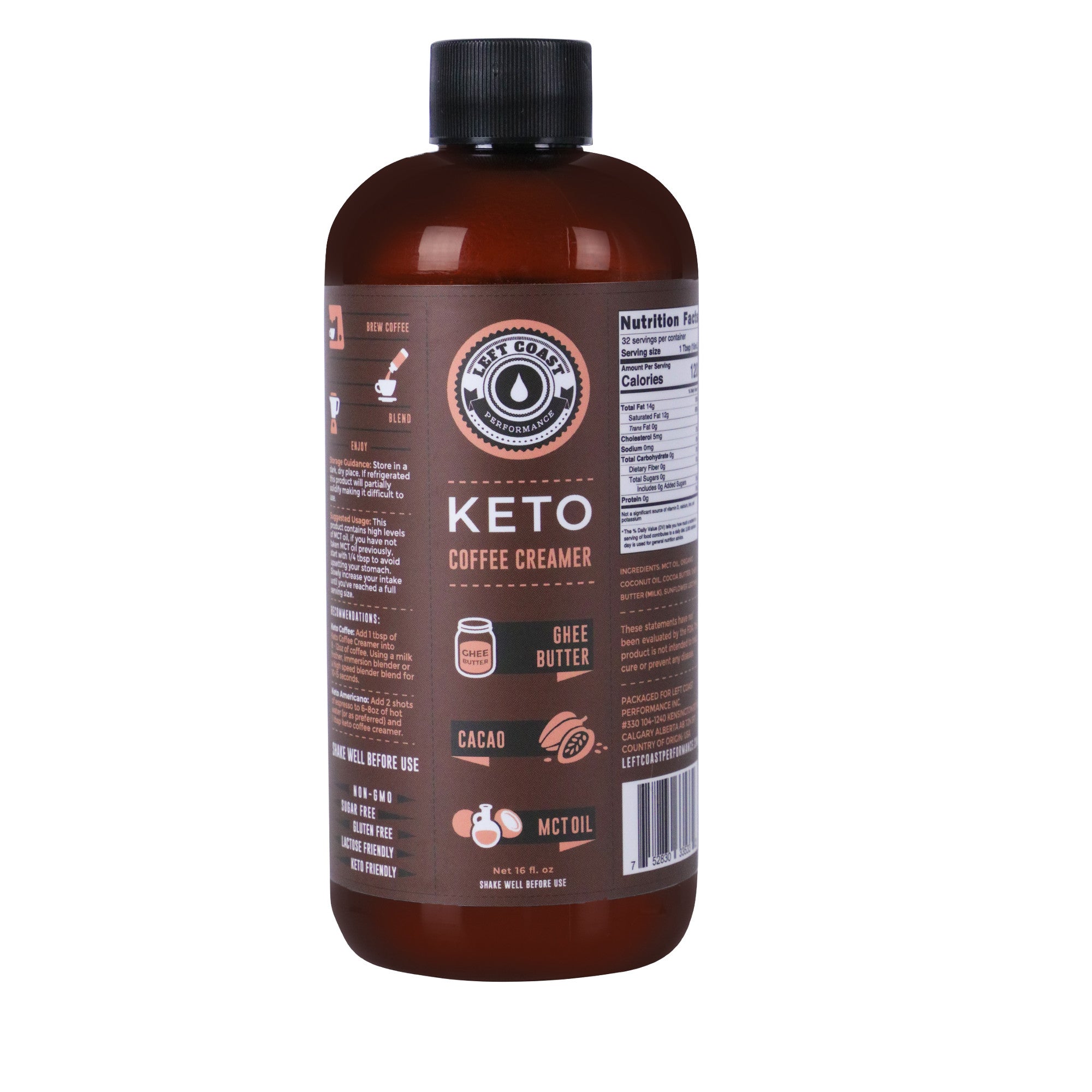MCT Oil vs. Powder
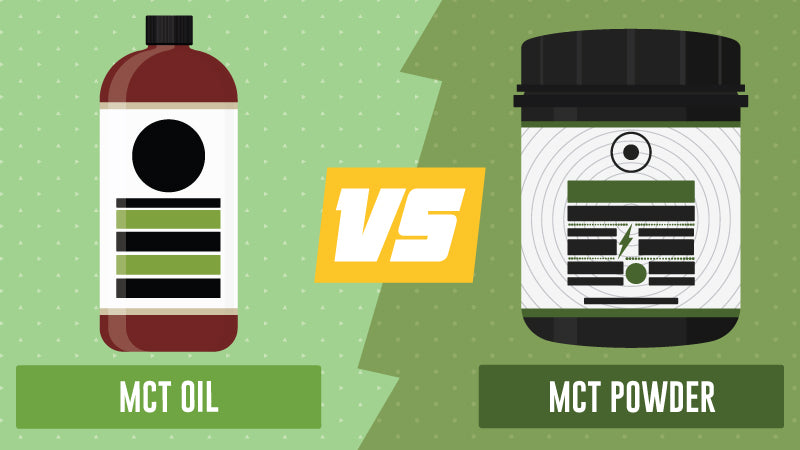
on June 27, 2019
What are MCTs?
Medium chain triglycerides (MCTs) are a type of fat. To better understand what MCTs are, first let’s briefly talk about the structure of fats in general. Fats are comprised of a long chain of carbon molecules with hydrogen molecules attached. They are characterized by the number of carbons found in each strand:
- Short-chain: Less than 6 carbons
- Medium-chain: 6-12 carbons
- Long-chain: 13+ carbons
There are four main fats that fall into the MCT category, these have between 6 and 12 carbons. These are:
- Caproic acid (C6): 6 carbon molecules.
- Caprylic acid (C8): 8 carbon molecules
- Capric acid (C10): 10 carbon molecules
- Lauric acid (C12): 12 carbon molecules
Each of these MCTs has different health benefits. For example, lauric acid C(12) has been found to improve insulin sensitivity and may help reduce acne breakouts.
Caprylic and capric acid are the main MCTs used for dietary supplements. These two have very specific health benefits, particularly for those who follow a ketogenic diet.
Health Benefits of MCTs
MCT oils are touted for their ability to provide immediate energy, particularly caprylic and capric acid. Unlike other types of fats, they are not readily stored as body fat. This makes them particularly useful for those transitioning into a ketogenic diet or during periods of fasting.
If you are following a ketogenic diet, transitioning from burning carbohydrates as fuel to burning fat can leave you exhausted and feeling terrible, initially. This transition is sometimes referred to as the “keto flu”. But, MCTs can help you maintain energy, even as you cut back on carbohydrates. MCTs also help increase ketones in the blood, so the transition isn’t quite as painful. People also use them to help maintain energy during intermittent fasting.
MCTs have several additional benefits as well, a few of the highlights include:
- Help with weight loss.
MCTs may help speed up metabolism to help you lose weight, especially around the midsection.
- Increase satiety.
MCTs increase satiety or the feeling of fullness after meals. In the long run, this can help you eat less and lead to weight loss.
- Optimal brain fuel.
The brain is mostly made out of fat, therefore healthy fats like MCT can improve function. Supplementation with MCT oil has been used to improve memory recall for people with Alzheimer’s disease.
- Help fight infection.
MCTs have been found to have antifungal and antibacterial properties, which may help the body fight off certain infections.
- Maintains gut health.
The antibacterial properties of MCTs may help fight digestive illnesses without killing off the important good bacteria in the gut.
- Improves blood sugar.
MCT oil may help improve insulin resistance, which in turn may help with blood sugar control.
- Supports heart health.
MCTs can improve your overall cholesterol profile by increasing LDL particle size. Large LDL particles are less likely to stick to arteries compared to smaller LDL particles.
- Improves exercise performance.
Supplementation with MCT oil helps reduce blood lactate, which may delay exercise fatigue.
MCT Oil Vs MCT Powder
When shopping for an MCT product you will find that they come in two different forms: pure MCT oil and MCT oil powder. Which should you choose? What are the pros and cons?
How is MCT Oil Made?
MCT oils are made by extracting caprylic and capric acid from either coconut or palm kernel oil. The process used to separate these two oils is called fractionation. The result is pure caprylic and pure capric acid.
Most manufacturers will mix the caprylic and capric acid back together to make MCT oil. What results is a liquid oil with no color, taste, or smell that can be easily added to foods or liquids.
How Is MCT Powder Made?
MCT oil powder is MCT oil mixed with a starch or powder of some kind. Pure MCT oil is taken and spray dried, a manufacturing process that turns liquids into powders. The process involves turning the liquid into tiny droplets, then hitting it with hot air so it dries. Spray drying helps increase stability of the product.

The powder is then mixed with some type of starch to create MCT oil powder. The result is a convenient to use powder that you can add to any food, smoothie, or beverage.
How to Use MCT Oil
As we have discussed, MCT oil has many health benefits. It is easy to add to food or drinks because it is liquid at room temperature with no odor or flavor.
If you want to add it to food, you should note that it does have a lower smoke point. This means that, unlike coconut oil, it should not be heated to high temperatures or the fats will start to breakdown. To add MCTs to your diet, it is best blended into smoothies, salad dressings, or added to butter coffee for a morning energy boost.
The main downside with MCTs is that they can cause digestive problems, such as diarrhea, gas, or stomach discomfort. This is because they are metabolized differently than other fats.
There are ways to prevent digestive problems, if you still want to take MCTs. First, always take MCTs with food.
Second, start slowly with one teaspoon at a time. Try bumping up your dose by ½ to 1 teaspoon every 3-5 days, until you reach the recommended dose on the package. If you have stomach pain or digestive problems back off for a few days until your body adjusts.
Third, use a high quality MCT Oil. When we first started selling MCT oil we sold Coconut/Palm Oil which is a nice way for brands to not come out and say it comes from Palm Oil. One reason we switched to pure Coconut MCT oil because we found it was a better product and generally easier on the digestive tract as well.
There is no specific dosage recommendation for MCTs. Studies on MCTs have used dosages between 5-70 mg. Most products recommend between 1-3 tablespoons per day.
If your goal is to lose weight, it is important to note that MCTs are a type of fat and therefore are high in calories. Although they may be beneficial for weight loss (here's why fats can actually be great for weight loss), dousing all your food in MCT oil, and therefore significantly increasing your calorie intake, isn’t going to help you lose weight.
How to Use MCT Powder
MCT powder is a convenient way to add MCT's to your diet, since it can be easy to carry with you. It is difficult to transport MCT oil as it can spill and ruin your clothes or other fabrics. But, the powder is dry and won’t make a big mess.
MCT powder does have a downside in terms of health. The way it is made it is mixed with starch after it is freeze dried. This dilutes the amount of actual MCT oil that is in the product.
The percentage of starch versus MCT oil can vary greatly from product to product. They can range anywhere from 70% MCT oil (MCT 70) and 30% powder, to 40% oil (MCT 40) and 60% powder. Depending on the ratio of powder to oil, you might be paying for a lot of “filler” without the health benefits of the MCTs.
Another factor to consider when looking for an MCT powder is the type of starch it is mixed with. Some manufacturers mix the oil with cheap starches made from corn, dairy, or grains. If you have a food sensitivity or allergy to these foods, you may have a reaction.
Cheap binders can contain a significant amount of carbohydrates. If you are trying to use MCT oil to help you get into ketosis, these MCT powders may have enough carbs to kick you out. Look for terms like maltodextrin, sodium caseinate, or corn fiber as a sign that cheap binding agents are being used. Avoid products made with these ingredients.
Other manufactures use fiber-type starches that will simply pass through the digestive tract unabsorbed having no impact on your blood sugar or carbohydrate intake. These will not kick you out of ketosis. Some of these, like acacia powder or tapioca fiber, have many of their own benefits such as improving blood sugar and digestion.
MCT powders made with high quality fillers may help reduce the digestive problems associated with MCT oil, since it is not pure oil.
Should You Chose MCT Oil or Powder?
As you can see there are pros and cons to both MCT oil and MCT powder. Here are a few final thoughts on how to decide which is best for you.
How will you use the product?
If you plan on simply using it in your kitchen to use as a keto coffee creamer, adding it to smoothies or making salad dressing with it MCT oil is probably your best bet.
If you want to add it to baked goods or are frequently traveling MCT Powder is a great option.
Does MCT Oil Give You Digestive Issues?
Many customers find they have no problem taking MCT powder but have trouble with pure MCT Oil. Obviously, if you fall into this category MCT powder may be your best bet.
Are You Following a Ketogenic Diet?
If you are just starting to follow a keto diet, you may want to keep both stocked. MCT's have been shown to support ketosis, in ways that other fats simply don't.
Consider the Cost
MCT oil is more cost effective than powder, you get more MCT for your dollar since you aren’t paying for any binding agents.
Look for Quality
Choose products with capric or caprylic acid only. Avoid products with lauric acid. Avoid powders with cheap fillers, emulsifiers, thickeners, food dyes, or liquid glucose. Avoid MCT Oil that contains Palm.
At this time, there is no clear winner on powder versus oil, it just depends on your individual goals are and what works best for you.



